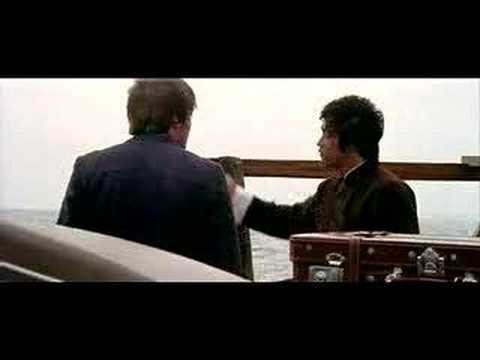Apperceptive Mess 13: Black Political Identity, Western vs Eastern Tactics
Since we last spoke, I published a new post on my blog, What French Dining Taught Me About Authenticity. It is all about my experience dining at a fancy French restaurant, and how our increasingly performative daily lives have erected obstacles between us and the beauty of awkward, inconvenient, and real everyday experiences.
Do check it out, give it a read, and let me know what you think!
Thought of The Week: It’s Time to Learn about Black Political Identity
It is tough to put out a newsletter without acknowledging the recent developments in the world. The death of George Floyd was deeply troubling and has sparked much-needed examination into what needs to change about police departments and the criminal justice system. Combined with the pandemic, this is proving to be a watershed moment for the history of the United States.
Confession: I know close to nothing about black political identity in the United States.
I did not grow up with any black friends or interact with a single black person until I moved to the United States in 2016. Up until that point, I only knew as much about black political identity as one could learn from watching late-night shows and perhaps 1 or 2 documentaries on Netflix. I had no exposure to black culture beyond what Hollywood showed me, which is problematic for obvious reasons. Recognizing it as something not immediately applicable in my daily life, I ignored engaging with the topic.
Well, until recently.
Right around the time of Ahmaud Arbery’s death, it became apparent I needed to understand what was going on. Some of my Singaporean peers who are international students in other countries are quick to relate the experience of black people to their own experiences as a minority abroad. There was, however, something deeply flawed about that logic. I do not doubt their claim of having experienced racial discrimination in their communities, but I knew this was something different. Fortunately, I had the privilege of my black friends and their patience with me, who helped me understand that their struggle exists in a different, more pressing dimension. As a democracy, the United States relies on its ability to elect officials to represent its people. These leaders become the face of their constituents, pass laws, and demand attention at various levels of government to help them resolve systematic social and political issues.
The black people of America struggle in a fundamentally different dimension. They struggle to be able even to represent themselves, much less within the political system. Voter suppression in black neighborhoods and police brutality are just two things in a long list of deeply-entrenched political forces that actively seek to undermine African Americans from being represented equally. The 13th amendment was supposed to free the African Americans from slavery and grant them civil rights; however, they just traded one version of slavery for another.
I am embarrassed that it has taken me that long, and even more ashamed to have at some point in my life saw the issue as fundamentally inconsequential to my life. With that, I will be committing time this summer to understand more about the history and evolution of black political identity, and I invite you to join me.
I have identified three books to start with:
1. The Ethics of Identity by Kwame Anthony Appiah
2. Black Skin, White Masks by Franz Fanon
3. Cane by Jean Toomer
A list of research worth looking into to understand what has worked/not worked so far in trying to reform policing in the United States:

I never speak publicly about anything I do not understand, so I do beg for everyone’s forgiveness and patience if my commentary on this is limited and not of any substance. There is nothing I can ever say right now that will be better than the voices of our black friends today on the streets and social media. Even as a nonimmigrant with no real ability to politically change things, I am listening.
Find of The Week: The Art of Fighting without Fighting
Please enjoy this excellent clip from Bruce Lee’s Enter The Dragon:
This scene reminds me of Judo’s “Alto no saki,” a fighting principle that means exploiting your opponents’ technique without blocking, and instead absorb their momentum and redirect it back into their bodies.
I’ve also recently grown interested in the contrast of the “Western” versus “Eastern” tactics. Simply put, the Western way of warfare is often associated with strategies inherited from the Greeks and Romans to become the dominant style Westerners use to this day. The other is the Eastern Way, which is said to originate from China and spread to other parts of the Asian continent and beyond, forming the basis of what we know today as guerilla warfare.
You see a similar contrast in board games: winning in chess favors a position-oriented strategy, while Go prefers a mobility-oriented one. I find this contrast genuinely fascinating as it shows more than just the difference in battle tactics but culture.
You can expect more writing on this topic coming up on the blog.
That is all we have for the week! I hope you enjoyed reading this as much as I did writing it. If you have any questions, suggestions, complaints, or feedback, please feel free to reach out by replying directly to this email!

Liked this newsletter? Be sure to share it with your friends and subscribe now if you haven’t done so!
It is the best way to keep in touch as I share the comings and goings of what I am working on and thinking about.
See you next week 👋


